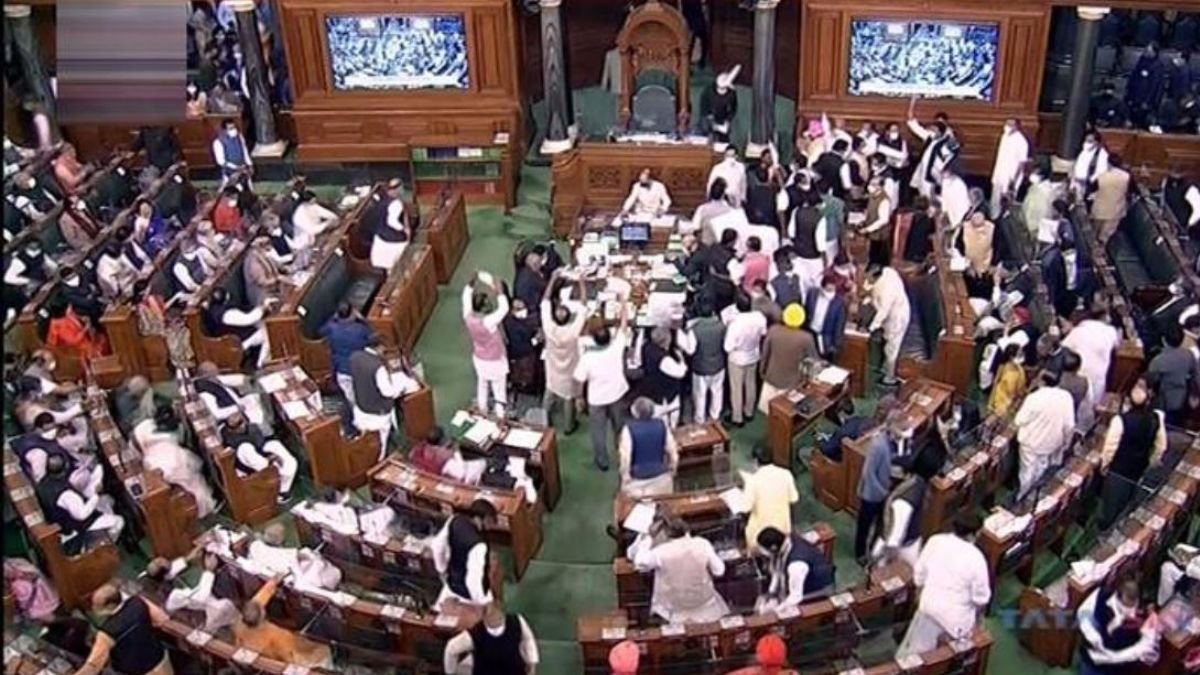The Lok Sabha secretariat listing a set of commonly used words as unparliamentary means that MPs have lost space for a healthy debate or dissent
Elected representatives in India have a peculiar problem hoisted in front of them. They will need to watch what they speak in parliament! Un-parliamentary has a spruced up meaning, that’s why!
In a nation where the ruling party at the Centre considers itself beyond flaws or criticism, this could just be a norm. Gone are the days when calling a hypocrite, a hypocrite was appropriate. Hypocrisy is what runs in the party benches these days, and it has become a norm that everyone who is against the piling up of hypocrisy in the most sacred of democracy’s temples should keep their mouth shut.
In the midst of an Opposition speech in Parliament, if an MP utters words such as jumlajeevi, baal buddhi, covid spreader, snoopgate, nikamma, he is sure to face action. Words such as anarchist, Shakuni, dictatorial, taanashah, taanashahi, Jaichand, vinash purush, Khalistani, khoon se kheti and more are also a strict No, and would also be expunged.
Forcing MPs to hold their tongue
All these words have been listed as ‘not-to-be-used’ in debates and speeches by any member of parliament. A new updated booklet Lok Sabha secretariat has a set of ‘un-parliamentary’ words that are not to be uttered once you are in parliament. Made public just ahead of the Monsoon Session of parliament, one wonders what is wrong with using these words during debates!!
It is no secret that the government in power detests dissent. Any word that will pierce into its domain in the form of criticism or ridicule will not be tolerated by the powers that be. The ones that run the social, secular democratic India are not to be ridiculed or criticised even if their inner conscience reminds them that they are at fault in at least certain things they do.
By forcing MPs to talk only ‘good’ words fit for parliament, the Lok Sabha secretariat has, for sure brought, in a gag order. If the Opposition has a point to make, it now will have to choose the most parliamentary words so that the party in power isn’t pained or hurt. Debates that speak for the nation should now have to be carefully worded. But then who doesn’t know that debate points and arguments need to be sharp and pointed so as to wake up the all-powerful from slumber and stupid acts.
One just wonders what’s wrong with the many words that are listed as un-parliamentary. Apart from the few mentioned above, there is a ban on using words such as bloodshed, bloody, betrayed, ashamed, abused, cheated, chamcha, chamchagiri, chelas, childishness, corrupt, coward, criminal and crocodile tears, disgrace, donkey, drama, eyewash, fudge, hooliganism, incompetent, lie, untrue, anarchist, gaddar, girgit, goons, ghadiyali ansu, apmaan, asatya, ahankaar, corrupt, kala din, kala bazaari, khareed farokht, danga, dalal, daadagiri, dohra charitra, bechara, bobcut, lollypop, vishwasghat, samvedanheen, foolish, pitthu, behri sarkar, and sexual harassment.
Talk only good, do not criticise!
The bottomline is clear. It isn’t at all against the words that are used by MPs in parliament. It is, however, a move to blunt criticism against the ruling party that holds clout. Dissent is not something that the powerful men and women out there in Parliament would want to tolerate. Intolerance is another way of stalling dissent. And that intolerance has come out now in the form of a set of expungable words and usages.
The MPs would now have to hone their speaking skills. They would have to bring in words and phrases that would not hurt the ones they are aimed at. But then, would they? The elected representatives should have the courage to call a hypocrite, a hypocrite. By doing so they would speak for the people who elected them to speak for them in parliament.
And so, when a minister or even the Prime Minister, acts in such away he earns the ‘nikamma’ tag, the people’s representatives have all the right to call him or her so. Therein lies the strength of the democracy called India. No one, even the prime minister, is beyond the people who elected him to lead them.
And if he errs, the people would want the person they elected to parliament to ask questions. They should, by using the words that would drive home the point. Has criticism become crime in the world’s largest democracy? It shouldn’t be allowed to happen. The questions, the debates, should go on.


